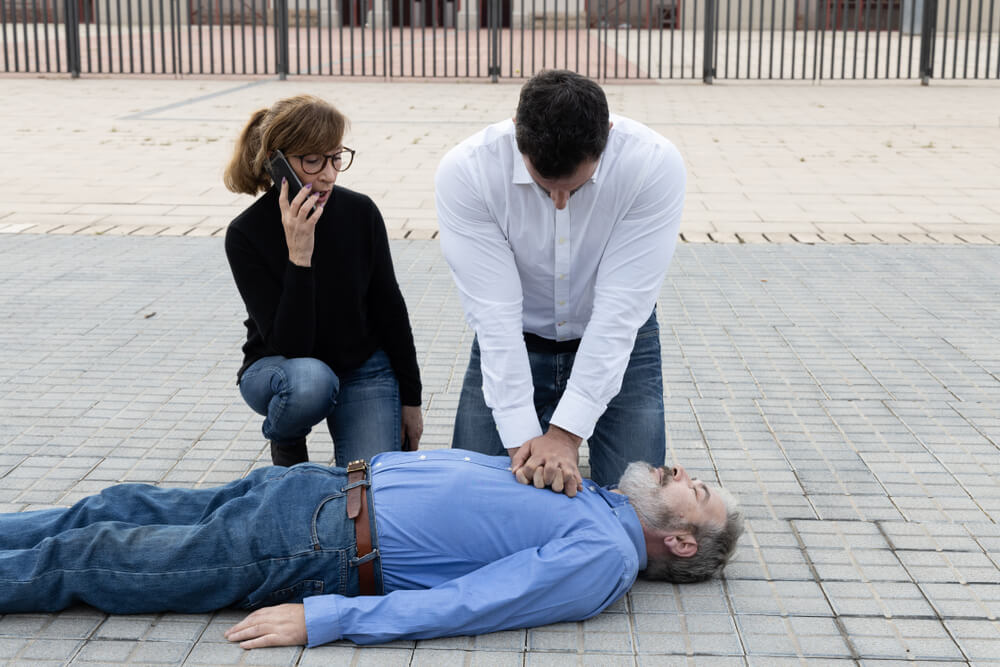The Good Samaritan Law in Texas

Is it a good idea to lend assistance to an injured person? In Texas, there is a Good Samaritan Law that protects citizens in these situations. If you have been the victim of a personal injury or have any questions concerning Texas’ Good Samaritan Law, you need Attorney R. Jason Holladay at Holladay Law Firm, PLLC by your side.
What is the Good Samaritan Law?
The Good Samaritan Law allows those who have witnessed an emergency situation to help those in need without any legal repercussions.
According to the Texas Civil Practice and Remedies Code § 74.151, “A person who in good faith administers emergency care is not liable in civil damages for an act performed during the emergency…”
Does the Good Samaritan Law Protect You if You Provide Medical Assistance?
Yes, the Good Samaritan Law does protect you if you provide medical assistance to an injured person. This law protects an individual who attempts to help, even if they make the accident victim’s injuries worse.
For example, a “good Samaritan” may rush an accident victim to the hospital but unknowingly cause further damage to their spinal cord in the transfer. Under the Good Samaritan Law, the good Samaritan would not be found responsible for any additional injuries as a result of their assistance.

Notably, if someone uses an automated external defibrillator, which is readily available in many public settings, they would not be held responsible if the victim dies. An automated external defibrillator has pads that you place on the victim. The electrodes analyze the heart rhythm and send an electrical shock if the victim is in cardiac arrest.
In a recent year, Texas trauma centers received 144,926 patient records for incoming traumas. This number is a gross underestimate since it does not include patient records under five pages. If someone did not help at the accident scene, these patients would not have received the help they desperately needed to make it to a medical facility. Citizens are encouraged to lend support in the hopes of providing necessary medical assistance.
Exceptions to the Good Samaritan Law
The Texas Civil Practice and Remedies Code has a few exceptions if the responder:
- Did not act in good faith (with bad intentions);
- Acted willfully or wantonly negligent;
- Caused the injury that requires the victim to receive aid; and
- Expected compensation for their assistance.
Willful or wanton negligence means that the individual lending a helping hand disregards the risk they pose to the victim. If someone is not using reasonable care in assisting an injured victim, they are not acting in the spirit of helping others.
Who is Protected and Not Protected Under the Good Samaritan Law?
Bystanders without any medical knowledge who are performing a good deed are protected under this law. Voluntary first responders are protected as well.
Medical professionals are not protected under the Good Samaritan Law since they have the medical expertise to avoid further injury to patients. Anyone who has a medical license or certification is not under the protection of the law.
For example, if a patient goes into cardiac arrest, a doctor may fracture their ribs in administering CPR. Even in an emergency room setting with all the medical equipment necessary, fracturing ribs is a risk associated with CPR. The doctor can still be sued by a patient’s family for this unintended injury.
A Personal Injury Attorney in Your Corner
If you have been injured in an accident or were a good Samaritan trying to help a citizen in distress, you need Holladay Law Firm, PLLC to evaluate your case. If you need direction in handling your personal injury case, contact us today.
